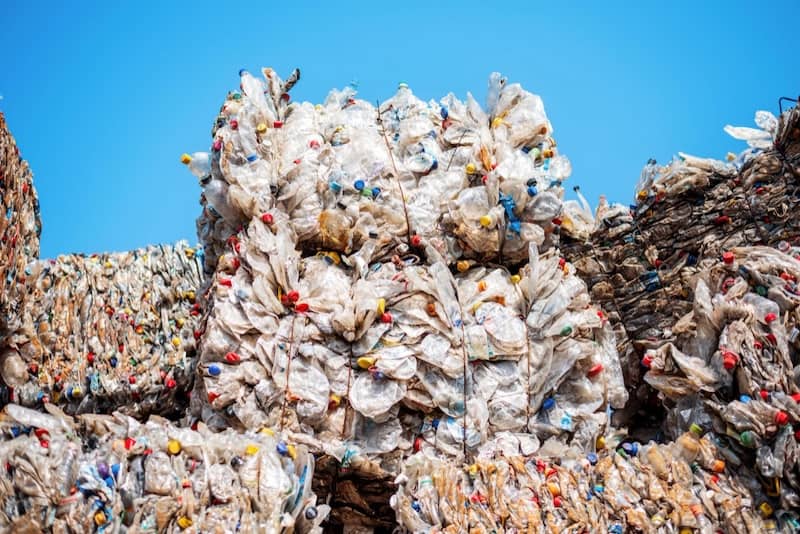In the late 20th century, enormous numbers of waste tires sat in landfills and causing rubber pollution. Opportunists took advantage of new technology and began turning waste into a resource by recycling tires. Since then, thousands of entrepreneurs have hitched their hopes onto the rapidly expanding market of tire recycling. Many have made fortunes in the new industry. Others went bust. What made the difference between success and failure? How is the market evolving? If you are considering leaping into the tire recycling market, make sure to avoid these three mistakes when starting a tire recycling business today.
1. Not Honing-in on a Niche
The concept of tire recycling is simple enough. Trucks, passenger cars and other vehicles wear tires bald producing waste. These tires can be collected at gas stations, tire dealerships and truck stops, processed through a recycling plant and sold as rubber ready to be repurposed. Thus, you can transform a free waste product into a valuable resource. In the 1990s, when tire recycling was in its infancy, this may have been a valid business strategy. It is rarely the case these days.
The key to success is finding an appropriate and specific niche. Lehigh Technologies in Georgia is a great success story in tire recycling circles. They have been successful in large part because they expanded into the niche of micronized rubber powders, a greener and price-competitive substitute for oil resins used in construction materials and new tire production. Because they only focus on this specific product, Lehigh Technologies has been able to thrive.
The niche a new tire shredding business should focus on depends on the location and size of the venture. The most viable strategies will refine the final product to something in demand nearby. Molds, colorizing lines or new advanced chemical compounds are all profitable options to add to a recycling plant in order to produce a unique product and achieve gains in today’s recycled tire market.
2. Not Planning Ahead
In any business venture, it is important to plan ahead. There are countless articles and books written on the subject of business plans. However, there are a few subjects that are specific to tire recycling that need to be planned for. In Utah, recyclers need to obtain a tire recycling permit through the Utah Department of Environmental Quality before a facility is legally allowed to operate. Regulations dictate how tires can be stored to make sure fire danger is kept to a minimum and the tire recycling line is safe. Similar permits are required throughout the country.
Planning your tire collection strategy is crucial to success. You should consider both the collection of used tires and the selling of whatever product your plant creates. Accomplished tire recycling companies make deals with car rental agencies and trucking companies to obtain end-of-life tires. Simple techniques such as leaving a large trailer for a business to dump old tires in and then transporting the trailer to the recycling plant can kick start a successful tire recycling system.
3. Buying the Wrong Equipment
The greatest roadblock to long-term tire recycling profits lies in the processing plant itself. The perfect niche and marketing plan will not be enough to turn waste tires into a lucrative product if the cost of installing, running and maintaining the tire recycling equipment is too high. The most cost-effective machine may not be the cheapest. The cost-effectiveness of tire recycling machinery is often difficult to calculate, but there are key aspects that hint at whether certain equipment will produce more than its counterparts for the same expense. Run machinery options through these three questions to equip your recycling plant with the best chance of success.
- Is it up to date?
The tire recycling process has seen many rapid advances in technology. Like most industries, one of the biggest shifts has been the addition of smart electrical systems, massively increasing productivity. The ECO Brain control panel uses smart technology to instantly notify ECO Green’s support team of any mechanical issues. It also provides emergency stop “Lock Out” options to the equipment and helps manage maintenance in a timely fashion. Gone are the days of shutting down a plant for hours and days to locate mechanical failures. Not investing in smart technology in today’s market is a substantial oversight.
- What is the output capacity?
The output capacity has a major effect on the financial sustainability of a tire recycling line. The most intensive step of recycling is the initial shredding of whole tires. High output capacity models such as the ECO Green Giant shredder that can process 30 tons per hour, are vital to keeping the whole plant productive. Make sure all of the steps along your tire reduction process have a similar output capacity. One bottleneck piece of equipment can slow down the entire process.
- How much maintenance is required?
All tire recycling equipment will require maintenance. Maintenance costs come in three forms. The cost of hiring employees or contractors to fix issues, the cost of products, such as bearing oil or new blades to keep the machinery running and the time cost of pausing production to fix, clean or alter equipment. If a shredder requires new blades every couple of days, or a colorizing unit requires intensive human surveillance, expenses will sky-rocket. It’s worth investing in low-maintenance equipment from the start that is connected with a support team that knows their way around tire recycling machinery. The team at ECO Green supplies both low-maintenance systems and a support network that can fix any production halting issues in a short time frame.
The Bottom Line
Tire recycling plants can be money-making machines that clean up the environment at the same time. However, entrepreneurs should be careful to select a well-researched niche, make a supply chain plan early, and most importantly, invest in quality, low-maintenance equipment. Otherwise, market competition, blown budgets and a mechanical nightmare can lead to an undesirable outcome.




